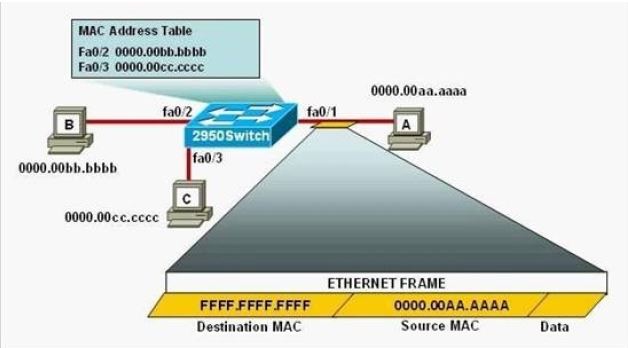Refer to the exhibit.

The following commands are executed on interface fa0/1 of 2950Switch.
2950Switch(config-if)# switchport port-security
2950Switch(config-if)# switchport port-security mac-address sticky
2950Switch(config-if)# switchport port-security maximum 1
The Ethernet frame that is shown arrives on interface fa0/1. What two functions will occur when this frame is received by 2950Switch? (Choose two.)
A. The MAC address table will now have an additional entry of fa0/1 FFFF.FFFF.FFFF.
B. Only host A will be allowed to transmit frames on fa0/1.
C. This frame will be discarded when it is received by 2950Switch.
D. All frames arriving on 2950Switch with a destination of 0000.00aa.aaaa will be forwarded out fa0/1.
E. Hosts B and C may forward frames out fa0/1 but frames arriving from other switches will not be forwarded out fa0/1.
F. Only frames from source 0000.00bb.bbbb, the first learned MAC address of 2950Switch, will be forwarded out fa0/1.